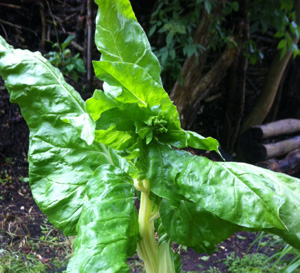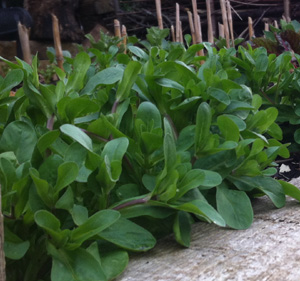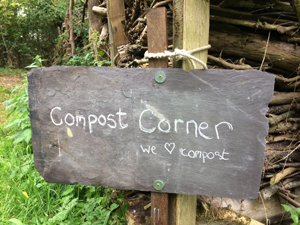Subscribe
to Orchard Barn's mailing list and receive
all
the latest offers on courses, volunteer tips and highlights and Ra's
BLOGS
about the project .




|
|
Coming Soon: Practical Permaculture
Workshop
Weed Wisdom & Sheet Mulching
At
Orchard Barn, we believe that weeds aren't just something to be battled
—
they're messages from the land. And our first practical
permaculture-inspired workshop explores just that, through the
guiding
principle of Observe and Interact.
This
isn’t your typical weeding session. It’s a chance to slow down,
look
closely, and ask deeper questions about what’s growing around us —
and what
it might be trying to tell us.
What is a weed, really?
In the
Orchard Barn garden, weeds arrive by wind, footstep, squirrel... and
quite
often, by bird. One of our most persistent ‘weeds’ is actually
the alpine
strawberry – generously sown by feathered friends and thriving
throughout
the beds.
While
many might see this creeping plant as a nuisance, we’ve chosen to
interact with
it differently. Rather than pulling it up, we grow tall edibles
like
raspberries and loganberries through the strawberry carpet. In
return,
the strawberries suppress other, more invasive weeds and offer a soft,
edible
ground cover. It's a living mulch – one that feeds us too!
Nature’s
surprise gardeners
We’ll
also observe the spontaneous planting efforts of our local wildlife.
Squirrels
have tucked away walnut and hazel seedlings in unexpected
places. During
the workshop, we’ll ask: Are these weeds? Or are they future trees?
What
happens when we choose to work with what’s already growing,
rather than
against it?
From
weed to tea
Some
so-called weeds are simply uninvited herbs. Take lemon balm
–
beautifully fragrant and often found springing up where you least
expect it.
During the session, we’ll harvest some and make a simple herb tea,
demonstrating a more nourishing interaction with what’s naturally
abundant.
Getting
practical: removing and reclaiming
Of
course, not every plant gets to stay. We’ll explore how to remove perennial
nettles, greengage suckers, and spreading blackthorn,
focusing on
their root structures and how best to reclaim space without turning
the soil.
Then
we’ll shift to sheet mulching – a no-dig, soil-friendly method
of weed
control that builds fertility while protecting the earth. You’ll learn
how to:
-
Use old
newspaper, soaked in rainwater, to form a weed barrier
-
Top it
with shingle-making chippings and sweet chestnut shavings (a
beautiful byproduct of our timber work)
-
Let
nature
do the rest
This
simple approach not only suppresses weeds but also enriches the soil,
retains moisture, and reduces the need for heavy weeding down the line.
Why this workshop matters
This
session is about more than just clearing ground — it's about learning
to
listen to the land. We’ll share knowledge, stories, and cups of
herb tea,
all while deepening our understanding of how to grow in harmony
with nature,
not in conflict with it.
Whether
you're new to gardening, a permaculture enthusiast, or simply curious
about
sustainable growing, we invite you to join us for this first in a
series of practical,
permaculture-inspired workshops at Orchard Barn.
Dates
and booking info coming soon – stay
tuned!
Want to
be the first to know when bookings open?
Sign up to our newsletter or follow us on Facebook and Instagram for
updates.
#Permaculture
#ObserveAndInteract #RegenerativeGardening #OrchardBarn
#WeedsAsTeachers
#SheetMulching #CommunityWorkshops #NaturalBuilding #SuffolkEvents
#HandsOnLearning #GreenWisdom Blog posted 18th May 2025
|
|